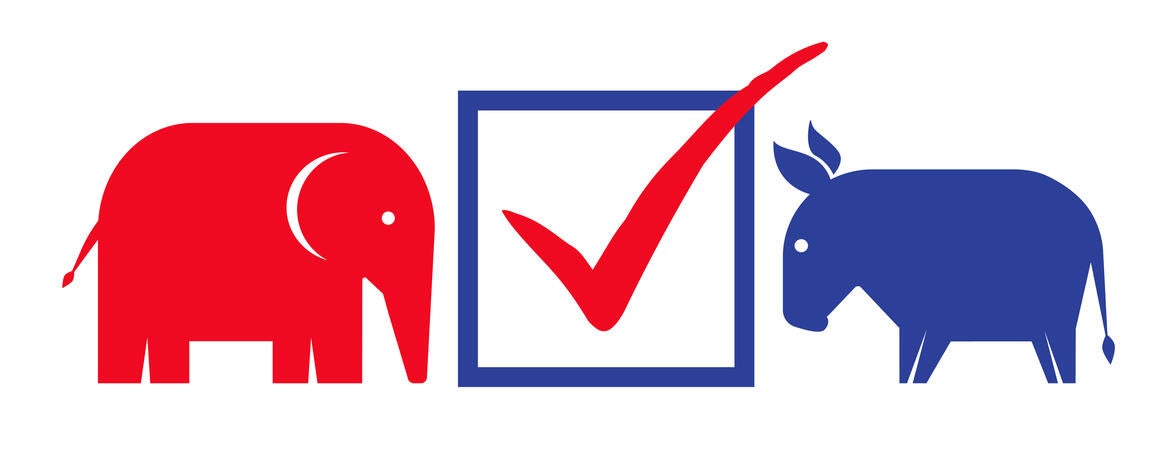
When it comes to presidential elections, are voters conscientiously endorsing populist beliefs? Or are they supporting populist candidates, primarily influenced by their Democratic or Republican party affiliation?
These are some of the questions Diogo Ferrari, an assistant professor of political science at UC Riverside, discusses in a paper published in the journal Research and Politics. Ferrari surveyed over 1,700 United States citizens to find out if voters support populist leaders for their populist rhetoric, or if voters support the candidate because they are loyal to their party. In his research, Ferrari found the latter to be true. The research helps shed light on voter behavior as populist leaders have risen to power, including in the United States.
“A wave of populist leaders gained ground in many democratic nations in recent decades, and their electoral support grew in many countries, including Italy, Spain, Austria, Germany, and other nations in Europe, Asia, and Latin America,” said Ferrari, whose research focuses on political methodology and comparative political behavior. “In the United States, Donald Trump won the 2016 presidential election after a campaign filled with populist elements.”
In this research Ferrari adopts the definition of populism as a “thin-centered” ideology composed of three primary elements: people centrism, anti-elitism, and a Manichean outlook.
Scholars are now trying to understand whether the rise of populist leaders — particularly those associated with right-wing ideologies — in government represents a threat to liberal democracy due to populist leaders’ anti-elitist, exclusionary, and often authoritarian rhetoric, Ferrari said.
The danger to a democracy can come from electoral support of populist leaders, when voters do not have complete information or do not stop to scrutinize messages conveyed by their party’s political candidate, Ferrari said.
Survey respondents received messages such as:
Populist message: The people know what is best for this country. The government should do whatever it takes to be the voice of the people and remove the corrupted elite that dominates our government.
Anti-populist message: A good president should join forces with other representatives, listen to specialist, and make compromises to do what is best for this country, even when it goes against the will of the people.
Survey respondents also received partisan cues to measure voters’ populist attitudes. Participants who self-identified as Democrat or Republican were more likely to agree with a populist or anti-populist messages when those messages came from a Democrat or Republican candidate.
“The argument predicts that a Republican or Democrat voter opposes a populist or anti-populist message if it comes from a Democrat or Republican leader, but supports that same message if informed that it is supported by their Republican or Democrat leader,” Ferrari said.
Political scientists have demonstrated that many voters tend to support some policies not because of the policy content, but because leaders of their favorite party advocate those policies. For example, a voter who is not necessarily anti-immigrant can support stringent anti-immigration policies if the candidate of their favorite party expresses a strong position in that direction. Ferrari demonstrates that the same logic applies to voters’ support for populist ideas: voters are not necessarily populists, but many appear to support populist ideas because of their party attachment.
It's a top-down political strategy, instead of a people to party approach. The study focused on presidential elections, but its results can be generalized for state and local elections too, Ferrari said.
Ferrari said several lessons can be learned from this research.
“Ideally, people should be more conscious, should pay more attention to what their leaders say,” Ferrari said. “Much of this is contingent acceptance of political identities. There is a danger of party identity, of having blindfolded followers of leaders who can disregard democratic procedures.”




